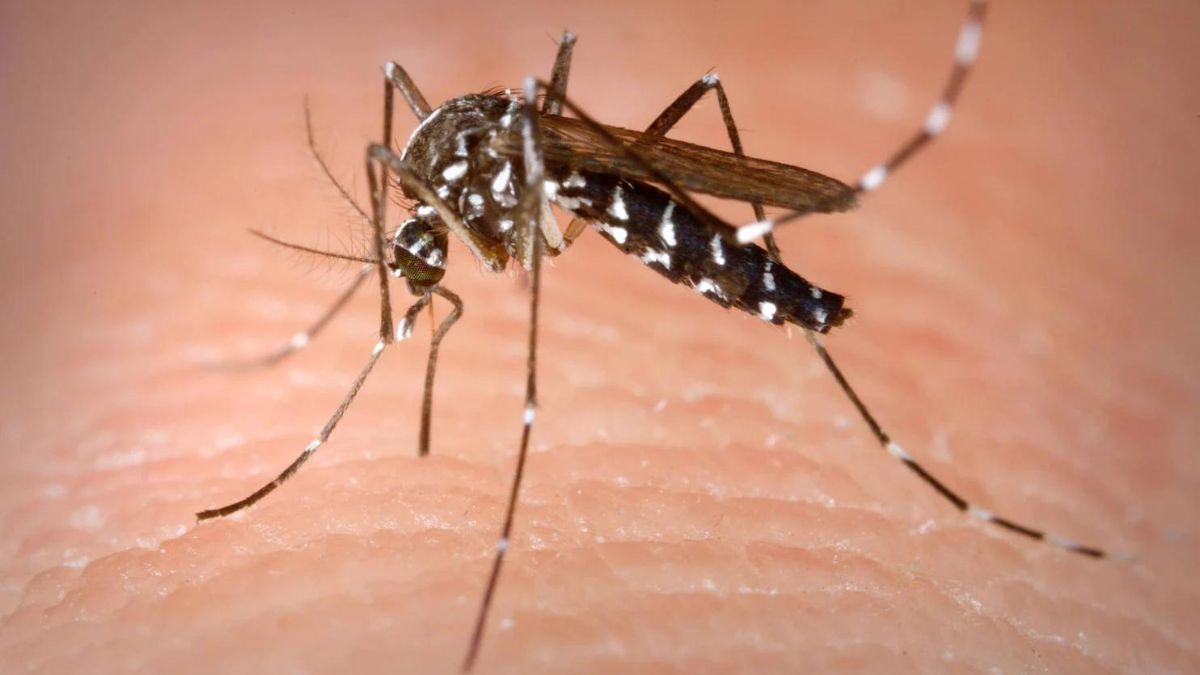The Vector Biology and Control Division of Mauritius’ Ministry of Health and Wellness has just released 500,000 Tiger mosquitoes near the Champ de Mars area, which houses the country’s heralded horse-racing course.
The initiative is part of a Sterile Insect Technique (SIT) project which forms part of the integrated vector management strategy to tackle mosquito-borne illnesses such as dengue and chikungunya.
The project aims at mitigating the proliferation of the vector population of Aedes albopictus, commonly known as Tiger mosquitoes. So far, a 10% decrease in the fertility of Aedes albopictus eggs is said to have been noted in the area.
What is a Tiger Mosquito?
The Tiger mosquito is a mosquito native to the tropical and subtropical areas of Southeast Asia. In the past few centuries, however, this species has spread to many countries through the transport of goods and international travel.
It is characterised by the white bands on its legs and body. This mosquito has become a significant pest in many communities because it closely associates with humans, and typically flies and feeds in the daytime in addition to at dusk and dawn. In Mauritius, it mainly bites between 5am to 7am and 3.30pm to 7.30pm.
The insect is called a tiger mosquito for its striped appearance, which resembles that of the tiger. Aedes albopictus is an epidemiologically important vector for the transmission of many viral pathogens, including the yellow fever virus, dengue fever, and Chikungunya fever. It can also host the Zika virus and is considered a potential vector for Zika transmission among humans.
According to the Head of the Vector Biology and Control Division, Dr Diana Pillay Iyaloo, the districts most affected by mosquito proliferation for the month of January 2023 are Rivière du Rempart, Plaines Wilhems and Savanne.
These have been determined through surveys carried out by staffs of the Vector Biology and Control Division during which potential mosquito breeding sites were inspected, she said.
Dr Iyaloo emphasised that the Division is now equipped with a recently developed tool, AlboMaurice, which uses meteorological data (rainfall and temperature) from 30 stations around the island to predict the density of mosquito population for the coming months. Based on this prediction model, regions most at risk for the month of February 2023 include Roche Bois, Ste Croix, Coromandel, St Paul, Rose Hill, Castel and Mahebourg.
According to the government official, male mosquitoes do not bite and therefore represent no harm to humans, animals and the environment.
Instead, sterile males will mate with female mosquitoes in the released area which will lay eggs that will not hatch. With time, there will be an increase in the number of sterile eggs in these regions, which will eventually decrease the population of Tiger mosquitoes thereat.
The SIT is targeting one out of fifteen species of mosquitoes present on the island in a target area (Champ de Mars region). She warned that it is very important for the public to take all necessary precautions against mosquitoes, especially during the forthcoming weeks, as their proliferation will be favoured due to the prevailing weather around the island.
Precaution
Precautionary measures to avoid mosquito bites include, among others:
- using electric diffusers;
- using mosquito repellent sandals, sprays or crème;
- wearing long sleeves and trousers;
- using fans; and
- using a mosquito net.
To prevent mosquito proliferation, it is advised to:
- prevent accumulation of stagnant water;
- change the water in vases once a week;
- avoid using saucers underneath flower pots;
- cover water containers tightly;
- clean up waste lands;
- put all used cans and bottles into covered dustbins; and
- avoid littering
Source: GIS Mauritius












